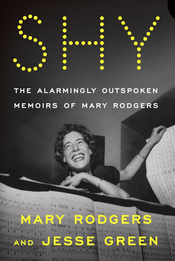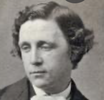A WRITER'S WIT |
My Book World

I’ve been a huge fan of comic Carol Burnett my entire life. I remember her belting out a song called “Shy,” when she appeared in a TV version of the play, Once Upon a Mattress. By today’s standards, it was a simple production and recorded on kinescope for us now to cherish by way of YouTube. The one highlight is Burnett as the princess singing “Shy” with some irony, her mouth open wide, her lungs full of air, no microphone needed. The thing I don’t know or realize at the time is that the music is written by the author of this book, Mary Rodgers—the younger daughter of composer Richard Rodgers.
Mary Rodgers’s book is co-written with Jesse Green, a lifelong friend. Rodgers at one point attempts to pen the book herself, yet always gets bogged down. But you’re a storyteller, Jesse tells her, a talker! So Mary tells her stories to Jesse, and Jesse does more than write them down. He creates a great book, handing over each draft to Mary for approval, until they arrive at what is this tome.
The title may not be quite so ironic when applied to Mary. Although she in many ways is bold, she is always reigned in, first of all, by her parents. Her mother, probably jealous of her daughter’s talent (this learned from Mary’s many hours on analysts’ sofas), belittles her and her work. Richard Rodgers, her famous father, is also begrudging with regard to how much time he spends with his daughter. Mary Rodgers (b. 1931) is an early feminist without the crusading. She must fight her way into every project she obtains until she reaches a certain point (probably when Mattress becomes a huge hit). Even after that, she doesn’t always get the big projects. Her fame comes more or less from writing projects for children.
In fact, she must love children a great deal, giving birth to six of her own (three each by two different husbands), one dying quite young. Her legacy, as she tells it, may to be a better parent than composer. She tries, in vain sometimes, to be a better mother than her own mother was. Ultimately she realizes she may not be able to have it all, as more recent feminists realize. At least not without a lot of help, women can’t have it all. (We’re talking the hiring of tutors, governesses, child caregivers, not to mention lots of domestic help—something available only to the wealthy.) At any rate, this memoir is enjoyable to read on many levels. Not always the greatest prose (transcription of an oral work seems to miss out on the finishing touches that grammar and phrasing can give it), with perhaps far too many footnotes that could have been incorporated into the main text, this memoir is still a pleasant and entertaining read.
Coming Next:
TUES: A Writer's Wit | Laura Lippman
WEDS: A Writer's Wit | Muriel Spark
THURS: A Writer's Wit | Havelock Ellis
FRI: My Book World | George Saunders: A Swim in a Pond in the Rain



 RSS Feed
RSS Feed